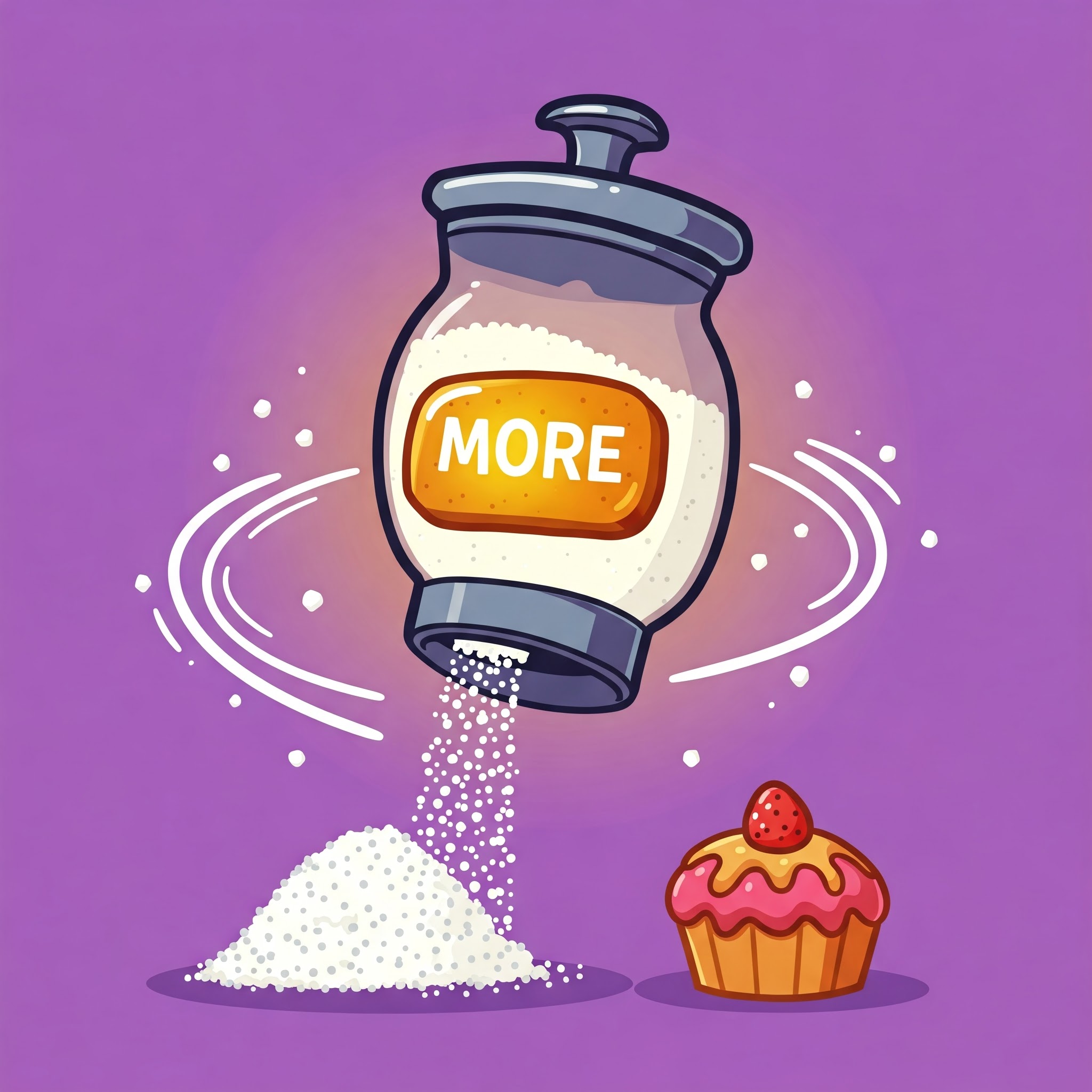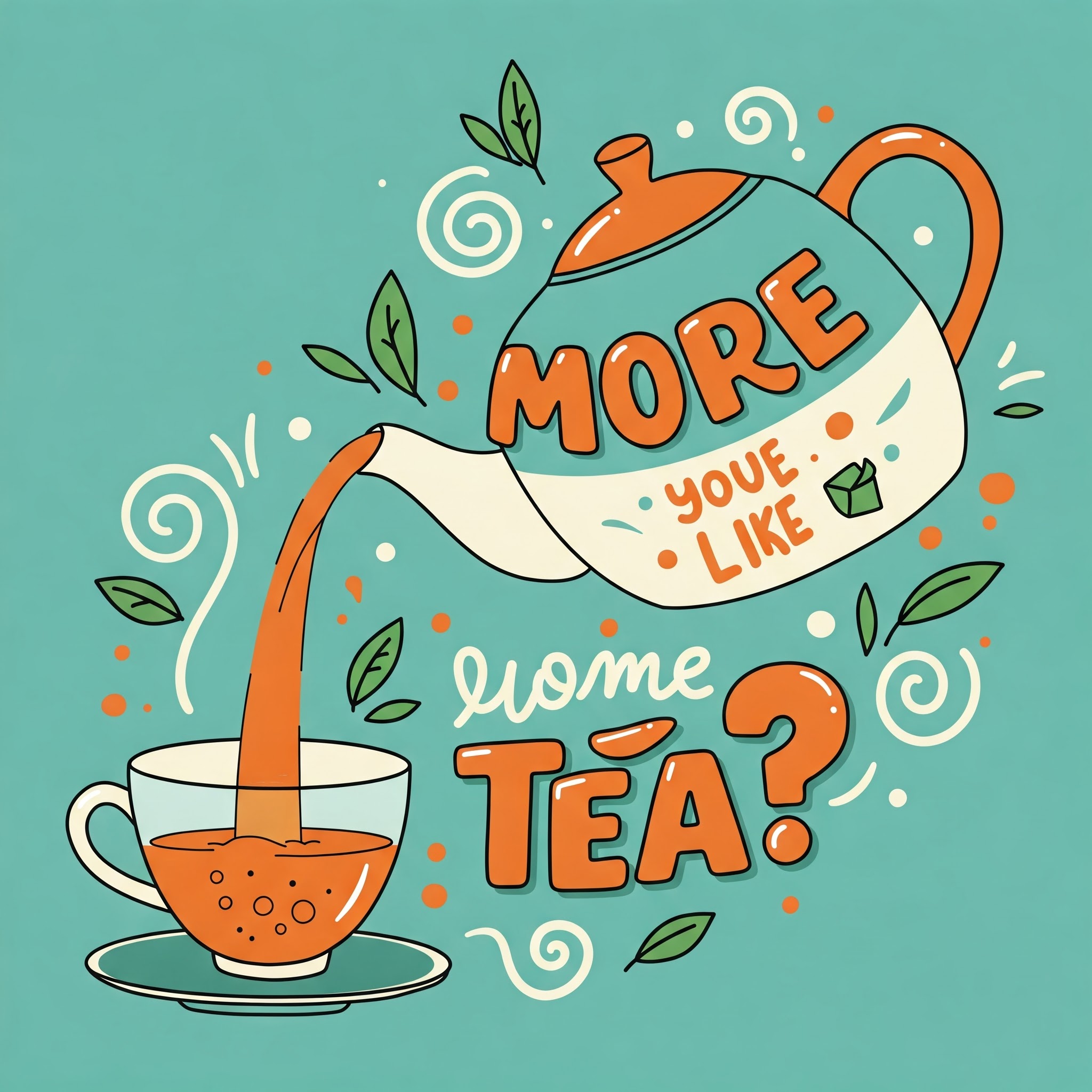More
Definition
More is an adjective, adverb, noun, and pronoun used to indicate a greater quantity, degree, or extent. It is commonly used for comparisons or to express an additional amount.
Parts of Speech
- Adjective
- Adverb
- Noun
- Pronoun
Pronunciation
American English
- IPA Pronunciation: /mɔɹ/
- Respelling: MOR
British English
- IPA Pronunciation: /mɔː/
- Respelling: MAW
Etymology
The word "more" originates from Old English "māra" (adjective) and "mā" (adverb), both meaning "greater" or "in addition to." It is derived from Proto-Germanic "*maiz" and Proto-Indo-European "*meis," meaning "big" or "great."
Derivatives
- Moreover (adverb)
- Morish (adjective, rare, archaic)
- Moreish (adjective, informal)
- Morosity (noun, rare, archaic)
- Morally (adverb, extended meaning)
Synonyms
- Additional
- Greater
- Extra
Antonyms
- Less
- Fewer
- None
Usage
The term "more" is used across various contexts to indicate an increase or addition. For example, "We need more time to complete the project," or "She performs more efficiently than her colleagues."
Related Terms
- Increase: A rise or growth in quantity or quality.
- Addition: Something added to what is already present.
- Comparison: The act of evaluating similarities and differences.
Detailed Definitions
Adjective
- Greater in quantity, degree, or extent: Used to describe an increase or higher level.
- Example: "This recipe needs more sugar."
Adverb
- To a greater extent: Used to indicate an enhanced or increased degree.
- Example: "She studies more diligently than anyone else."
- In addition to: Refers to an extra element or amount.
- Example: "Would you like some more tea?"
Noun
- An additional amount or quantity: Refers to something beyond what is already present.
- Example: "He asked for more of the cake."
Pronoun
- A greater or additional number or amount: Functions as a substitute for a noun.
- Example: "If you need more, let me know."
more



🇨🇳 Mandarin (Simplified Chinese)
- 更多 (Gèng duō): more, additional
- IPA Pronunciation: /kəŋ tuɔ/
- Respelling: (gung duo)
- 多 (Duō): more
- IPA Pronunciation: /tuɔ/
- Respelling: (tuo)
🇮🇳 Hindi
- और (Aur): more
- IPA Pronunciation: /ɔːr/
- Respelling: (ore)
- अधिक (Adhik): more, additional
- IPA Pronunciation: /əɖʱɪk/
- Respelling: (uh-dhik)
🇪🇸 Spanish
- Más: more
- IPA Pronunciation: /mas/
- Respelling: (mas)
- Más de: more of
- IPA Pronunciation: /mas de/
- Respelling: (mas de)
🇫🇷 French
- Plus: more
- IPA Pronunciation: /plys/
- Respelling: (pleus)
- Davantage: more, further
- IPA Pronunciation: /da.vã.taʒ/
- Respelling: (da-va-tazh)
🇸🇦 Arabic (Modern Standard Arabic)
- أكثر (Akthar): more
- IPA Pronunciation: /ʔakθar/
- Respelling: (ak-thar)
- زيادة (Ziyada): more, increase
- IPA Pronunciation: /ziːˈjaːda/
- Respelling: (zee-yaa-da)
🇧🇩 Bengali
- আরও (Ārō): more
- IPA Pronunciation: /aro/
- Respelling: (a-ro)
- বেশি (Bēśi): more, excessive
- IPA Pronunciation: /beʃi/
- Respelling: (be-shi)
🇷🇺 Russian
- Больше (Bolshe): more
- IPA Pronunciation: /bolʲʂe/
- Respelling: (bol-she)
- Ещё (Yeshchyo): more, yet, still
- IPA Pronunciation: /ɪˈɕːɵ/
- Respelling: (i-shyo)
🇵🇹 Portuguese
- Mais: more
- IPA Pronunciation: /maɪs/
- Respelling: (mice)
- Mais de: more of
- IPA Pronunciation: /maɪs dɨ/
- Respelling: (mice de)
🇮🇩 Indonesian
- Lebih: more
- IPA Pronunciation: /lə.bi/
- Respelling: (le-bee)
- Lebih banyak: more, a greater number
- IPA Pronunciation: /lə.bi ba.ɲak/
- Respelling: (le-bee ban-yak)
🇩🇪 German
- Mehr: more
- IPA Pronunciation: /meːr/
- Respelling: (mehr)
- Mehr von: more of
- IPA Pronunciation: /meːr fɔn/
- Respelling: (mehr fon)
🇯🇵 Japanese
- もっと (Motto): more
- IPA Pronunciation: /motːo/
- Respelling: (motto)
- 以上 (Ijō): more, above
- IPA Pronunciation: /i.dʑoː/
- Respelling: (ee-jo)
🇻🇳 Vietnamese
- Nhiều hơn: more
- IPA Pronunciation: /ɲiəw ɦɔn˧˥/
- Respelling: (nyew hon)
- Thêm: more, additional
- IPA Pronunciation: /tʰem/
- Respelling: (them)
🇰🇷 Korean
- 더 (Deo): more
- IPA Pronunciation: /dʌ/
- Respelling: (deo)
- 더 많이 (Deo mani): more, a greater number
- IPA Pronunciation: /dʌ ma.ni/
- Respelling: (deo ma-nee)
🇹🇷 Turkish
- Daha: more
- IPA Pronunciation: /daːha/
- Respelling: (da-ha)
- Daha fazla: more, a greater number
- IPA Pronunciation: /daːha fazla/
- Respelling: (da-ha faz-la)
🇵🇰 Urdu
- زیادہ (Zyada): more
- IPA Pronunciation: /ziː.ɖaː/
- Respelling: (zee-da)
- مزید (Mazeed): more, additional
- IPA Pronunciation: /mə.ziːd/
- Respelling: (mu-zeed)





